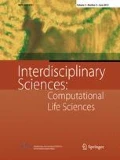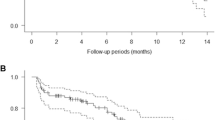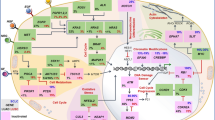Abstract
Background
Nivolumab, a fully human IgG4 programmed cell death-1 checkpoint inhibitor, demonstrated its benefit of prolonged survival in advanced non-small cell lung cancer (NSCLC). However, nivolumab generated unique immune-related adverse events such as thyroid dysfunctions. Herein we assessed nivolumab-induced thyroid dysfunctions in patients with previously treated advanced NSCLC in our hospital.
Methods
The medical records of 11 patients with advanced NSCLC who were initiated with nivolumab treatment between June 28, 2018, and January 15, 2019, in our hospital were reviewed. Serological tests of thyroid-stimulating hormone and free tetraiodothyronine were measured at baseline and every 8 weeks.
Results
Three out of 11 patients developed new-onset hypothyroidism during the treatment, and two of three patients had transient hyperthyroidism first. Two patients were diagnosed with Grade 2 hypothyroidism and received levothyroxine therapy. The other one was Grade 1 hypothyroidism and asymptomatic. All these three patients continued nivolumab therapy.
Conclusion
Nivolumab-induced thyroid dysfunctions in advanced NSCLC were mostly mild and controlled. Thyroid function needs to be monitored for early prediction and appropriate managements of thyroid dysfunctions.

Similar content being viewed by others
References
Sgambato A, Casaluce F, Sacco PC et al (2016) Anti PD-1 and PD-L1 immunotherapy in the treatment of advanced non-small-cell lung cancer (NSCLC): a review on toxicity profile and its management. Curr Drug Saf 11:62–68
Brahmer J, Reckamp KL, Baas P et al (2015) Nivolumab versus docetaxel in advanced squamous-cell non–small-cell lung cancer. N Engl J Med 373:123–135. https://doi.org/10.1056/NEJMoa1504627
Borghaei H, Paz-Ares L, Horn L et al (2015) Nivolumab versus docetaxel in advanced nonsquamous non–small-cell lung cancer. N Engl J Med 373:1627–1639. https://doi.org/10.1056/NEJMoa1507643
Garon EB, Rizvi NA, Hui R et al (2015) Pembrolizumab for the treatment of non–small-cell lung cancer. N Engl J Med 372(21):2018–2028
Herbst Roy S, Paul Baas, Dong-Wan Kim et al (2015) Pembrolizumab versus docetaxel for previously treated, PD-L1-positive, advanced non-small-cell lung cancer (KEYNOTE-010): a randomised controlled trial. The Lancet 387(10027):1540–1550
Rittmeyer A, Barlesi F, Waterkamp D et al (2017) Atezolizumab versus docetaxel in patients with previously treated non-small-cell lung cancer (OAK): a phase 3, open-label, multicentre randomised controlled trial. Lancet 389(10066):255–265
Topalian SL, Hodi FS, Brahmer JR et al (2012) Safety, activity, and immune correlates of anti-PD-1 antibody in cancer. N Engl J Med 366:2443–2454
Lyon AR, Yousaf N, Battisti NML et al (2018) Immune checkpoint inhibitors and cardiovascular toxicity. Lancet Oncol 19(9):e447–e458
Ryder M, Callahan M, Postow MA et al (2014) Endocrine-related adverse events following ipilimumab in patients with advanced melanoma: a comprehensive retrospective review from a single institution. Endocr Relat Cancer 21:371–381
Osorio JC, Ni A, Chaft JE et al (2017) Antibody-mediated thyroid dysfunction during T-cell checkpoint blockade in patients with non-small-cell lung cancer. Ann Oncol 28(3):583–589. https://doi.org/10.1093/annonc/mdw640
Common terminology criteria for adverse events (CTCAE). Version 4.03. https://evs.nci.nih.gov/ftp1/CTCAE/CTCAE_4.03/CTCAE_4.03_2010-06-14_QuickReference_5x7.pdf. Accessed 16 Jun 2016
Ross DS, Burch HB, Cooper DS et al (2016) American thyroid association guidelines for diagnosis and management of hyperthyroidism and other causes of thyrotoxicosis. Thyroid 26(10):1343–1421
Orlov S, Salari F, Kashat L et al (2015) Induction of painless thyroiditis in patients receiving programmed death 1 receptor immunotherapy for metastatic malignancies. J Clin Endocrinol Metab 100:1738–1741
Kimbara S, Fujiwara Y, Iwama S et al (2018) Association of antithyroglobulin antibodies with the development of thyroid dysfunction induced by nivolumab. Cancer Sci 109:3583–3590
Champiat S, Lambotte O, Barreau E et al (2016) Management of immune checkpoint blockade dysimmune toxicities: a collaborative position paper. Ann Oncol 27:559–574
Merck. Pembrolizumab US full prescribing information (2014). https://www.merck.com/product/usa/pi_circulars/k/keytruda/keytruda_pi.pdf. [Accessed April 2017]
Naidoo J, Page DB, Li BT et al (2015) Toxicities of the anti-PD-1 and anti-PD-L1 immune checkpoint antibodies. Ann Oncol 26:2375–2391
Spain L, Diem S, Larkin J (2016) Management of toxicities of immune checkpoint inhibitors. Cancer Treat Rev 44:51–60
Brahmer JR, Lacchetti C, Schneider BJ et al (2018) Management of Immune-Related Adverse Events in patients treated with immune checkpoint inhibitor. Rev Endocr Metab Disord therapy: American Society of Clinical Oncology clinical practice guideline. J Clin Oncol 36:1714–1768
National Comprehensive Cancer Network. Management of immunotherapy-related toxicities. (Version 1.2019). https://www.nccn.org/professionals/physician_gls/pdf/immunotherapy.pdf. [Accessed 14 November 2018]
Author information
Authors and Affiliations
Corresponding authors
Ethics declarations
Conflict of interest
The authors declared that they have no conflicts of interest in this study.
Rights and permissions
About this article
Cite this article
Zhang, X., Wu, Y., Lv, J. et al. Nivolumab-induced Thyroid Dysfunctions in Patients with Previously Treated Non-small Cell Lung Cancer. Interdiscip Sci Comput Life Sci 11, 287–291 (2019). https://doi.org/10.1007/s12539-019-00337-8
Received:
Revised:
Accepted:
Published:
Issue Date:
DOI: https://doi.org/10.1007/s12539-019-00337-8




